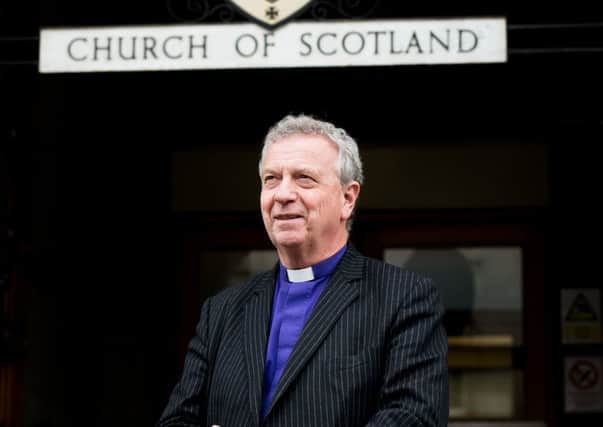Religious education ‘can halt violent extremism’


In his New Year message, the Rt Rev John Chalmers said the classroom was the “front line” for winning the battle against radicalisation.
CONNECT WITH THE SCOTSMAN
• Subscribe to our daily newsletter (requires registration) and get the latest news, sport and business headlines delivered to your inbox every morning
Advertisement
Hide AdAdvertisement
Hide AdHowever, the Humanist Society Scotland said it was in favour of religious study in schools, but not acts of worship.
There is growing concern about the number of young Britons travelling to the Middle East to take up arms with the jihadi group Islamic State (IS).
Earlier this year, Abdul Raqib Amin, who grew up in Aberdeen, appeared in a propaganda video for the group, which is responsible for the murder of British aid workers David Haines and Alan Henning.
Mr Chalmers said he was not calling for proselytising within schools but, rather, a place in the curriculum for understanding other faiths.
He said: “Nothing is more dangerous than the radicalised mind and there is nothing worse than the indoctrinated child.
“We will not, however, defeat such extremism simply by confronting it across battle lines.
“The front line for winning this battle is education and the school is the place where young minds need to be introduced to the power of critical inquiry.
“How else will a young person ever grow to be able to make wise choices unless they are allowed access to the widest possible range of knowledge?”
Advertisement
Hide AdAdvertisement
Hide AdMr Chalmers said tolerance would not come from removing religious observance from the curriculum, but by “building on the strong tradition of religious reflection” in Scottish schools.
He added: “Every child needs to know about religious practice and it has to be shared in a context of open-mindedness and mutual respect, so I’ll be doing all that I can to see that religious observance or time for reflection stays in the curriculum.”
Earlier this year, both the Church of Scotland and the Scottish Humanist Society said the phrase “religious observance” had become outdated in non-denominational schools.
They said changing the legal definition to “time for reflection” could ease the concerns of parents, helping make schools more inclusive.
Gary McLelland, a spokesman for the Humanist Society Scotland, said: “I share John Chalmers’ broad call for more understanding about different faiths.
“Mr Chalmers might want to bear in mind that religious faith is very much a minority pursuit among young Scots, with 74 per cent of 14- to 17-year-olds having no religious faith.
“Increasingly people of all ages are looking to reason, rationality and evidence to base their moral and social views on – not necessarily religious teachings. We are, though, completely supportive of comparative religious and philosophical study.
“The Humanist Society Scotland and Church of Scotland joined together at the start of this year to say that religious observance should be replaced with a more inclusive form of ‘time for reflection’ – something which is inclusive of all religions and belief traditions.”
SCOTSMAN TABLET AND IPHONE APPS